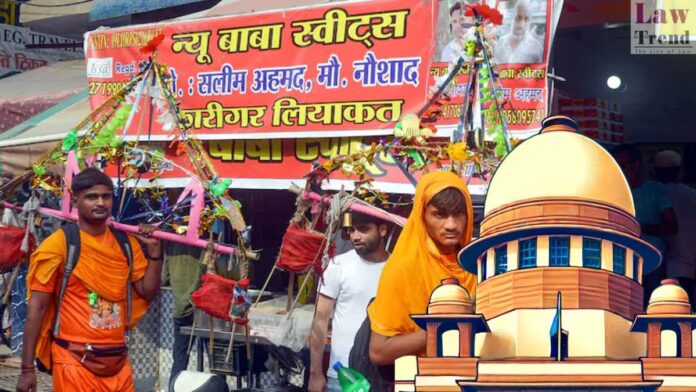The Supreme Court is set to hear a fresh plea on Tuesday challenging the Uttar Pradesh government’s directive mandating food vendors along the Kanwar Yatra route to display QR codes and disclose owner identities. The petitioner argues that the move revives a previously stayed policy and risks discriminatory profiling.
The petition, filed by academic Apoorvanand Jha, contends that the new directive violates an interim stay issued by the top court on July 22, 2024. That order had held that forcing food vendors to reveal personal identities, including names and religious affiliations, lacked legal backing under food safety laws and infringed upon the right to privacy.
A bench led by Justice M.M. Sundresh will hear the matter on July 15.
Jha’s counsel, advocate Akriti Chaubey, submitted that the Uttar Pradesh administration, through a press release dated June 25, effectively reintroduced the same directive under the guise of enhancing food safety via QR-code-based licences linked to the Food Safety Connect App. These codes allow pilgrims to verify hygiene certifications and file complaints, but they also publicly display the names of shop owners, which the petitioner claims could expose vendors to communal targeting.
The application alleges that the directive is being enforced under the garb of public safety and law and order, despite lacking any legal mandate under the Food Safety and Standards Act, 2006. It further claims that the requirement disproportionately affects the privacy of shop, dhaba, and restaurant owners, especially if their religious or caste identities are revealed.
“These vague and overbroad directives risk arbitrary and even violent enforcement by vigilante groups or state authorities,” the plea says, urging the court to impose an immediate stay on the directive.
Last year, similar directives by Uttar Pradesh and Uttarakhand required food stalls to prominently display the names of owners and staff during the Kanwar Yatra. These were challenged by Jha, Trinamool Congress MP Mahua Moitra, and the Association for Protection of Civil Rights (APCR).
The states defended the move as a transparency measure rooted in the Food Safety Act, arguing that it ensures informed choices for Kanwariyas, especially given their religious dietary concerns. The UP government, in its affidavit, had asserted that the directive applied uniformly to all vendors, irrespective of religion, and was geographically limited to the Yatra route.
While denying allegations of discrimination, the state claimed the temporary nature of the measure ensured no lasting harm to vendors.
The Supreme Court will now consider whether the reintroduced QR code regime circumvents its previous orders and undermines constitutional protections on privacy and equality.




